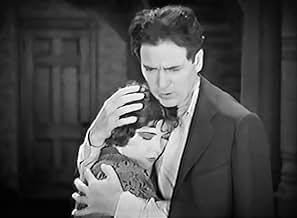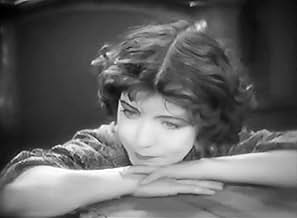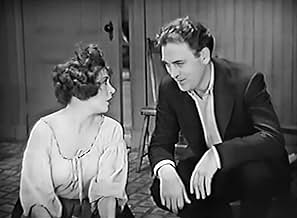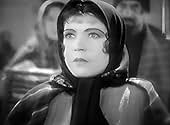A WWI vet takes on the KKK when he loses his wife to a womanizing Klansman.A WWI vet takes on the KKK when he loses his wife to a womanizing Klansman.A WWI vet takes on the KKK when he loses his wife to a womanizing Klansman.
- Director
- Writers
- Stars
- Awards
- 4 wins total
Symona Boniface
- Woman at Welcome-Home Party
- (uncredited)
Delmer Daves
- Undetermined Role
- (uncredited)
Christian J. Frank
- Wife Beater
- (uncredited)
Herman J. Mankiewicz
- Newspaperman
- (uncredited)
Broderick O'Farrell
- Poker Player on Train
- (uncredited)
Will Walling
- Uncle Billy - Townsman
- (uncredited)
- Director
- Writers
- All cast & crew
- Production, box office & more at IMDbPro
Featured reviews
What a bizarre and fascinating movie, with quite a bit to think about. I won't bother with the plot, except to say it's melodramatic and has some interesting (and pretty unique) turns in its short 72 minute run time. The things which stood out:
These three things were intriguing to me because they each created conflicting feelings. There are no black/white, purely good or bad aspects, certainly by today's standards. I was surprised over what I was seeing and it took time to process it, both in the context of the period as well as how it affected me. The film is not a masterpiece by any means, but these are the kinds of things which fascinate me about old movies.
- The KKK reference. It seems to me a critique of organized thugs who operate outside the law, or in this case, essentially are the law, while at the same time, not wanting to be direct about the racism of the real-life Klan. "The Order" in this film is a large group of armed townsfolk who don hoods and robes at night, then burst into homes and haul people off to answer for behavior they deem unacceptable (with one stated goal being to "safeguard the honor of our womenfolk"). Without any real form of trial where one is presumed innocent, allowed to prepare a defense, etc, victims answer questions put to them by the hooded leader. With a bonfire blazing away in the background, if he deems they're guilty, they're strapped to a giant cross and whipped. It doesn't have the racist persecution of real Klan behavior and is therefore far from an ideal depiction, but it's still a scary vision of the degradation of justice in America, and mob rule. They might seem to dispense justice in a couple of cases, but do they really? We have no idea, there is no trial, and the punishment is cruel and unusual. Aside from flogging people, they operate on hearsay, get things wrong, plant evidence, and arbitrarily decide a murder is OK. I think the critique is consistent with the increased criticism of the Klan in the mid to late 1920's, and its associated decrease in power.
- The sex. Producer Howard Hughes apparently wanted to push boundaries, and he and director James Cruze certainly did. Evelyn Brent is quite steamy as she attempts to seduce Thomas Meighan in a couple of scenes. In one she feigns an accident and pours a tub of water over her dress so that she has to change in his bedroom. In another she stands behind him, cheek pressed into his back, and fondling his hand in what seems like a reference to his manhood. Her eyes are so beguiling and she has just one thing on her mind for most of her time on the screen. Later Renée Adorée takes a nude swim, and then pads around in a wet, clinging nightgown. Helen Foster plays a beautiful young girl who is having an affair with a married man (Alan Roscoe), one of many for him, and what sets his wife (Brent) out to "follow his example." The film objectifies women and puts them into the usual buckets (temptress, virtuous, ruined), but it also points out the double standard.
- The transactional view of marriage. When Meighan's character wants to get married ASAP he simply goes out to Ellis Island and makes a bargain with an immigrant family, who won't be let into America otherwise. (This is where Adorée comes in). He simply states that he needs a wife to help work on his farm, and after some heated sidebar discussion, they young woman and her parents agree. The two know nothing about each other. The power imbalance and the idea of essentially a mail-order bride is disturbing to me, but they don't seem upset by it, and it just seems like a business transaction to them. Is it horrifying, or is a part of this more honest than many marriages? Is it a reflection of the times despite being a plot artifice, because of its practicality and the speed with which they get married (just as he was quickly married to Brent's character earlier)? Maybe all of the above. Regardless, she presents herself to him that night, knowing that's part of her 'obligations' (he demurs), makes a big breakfast for him the next morning, and soon we see her on all fours scrubbing the floor. The relationship grows to include some tenderness and signs of affection, including an amusing scene where Adorée pretty expertly scrubs down a pig and he joins her (why the pig needs to be washed, we have no idea). It seems a positive view of what is a strange marriage.
These three things were intriguing to me because they each created conflicting feelings. There are no black/white, purely good or bad aspects, certainly by today's standards. I was surprised over what I was seeing and it took time to process it, both in the context of the period as well as how it affected me. The film is not a masterpiece by any means, but these are the kinds of things which fascinate me about old movies.
THE MATING CALL was shown on TCM on Dec. 15, 2004, marking its apparent first screening since 1928. The silent film is something of a morality play, complete with a returning soldier who has lost his wife (to an adulterer); a morals police force, the Order, in dark cloth hoods (except for the leader, who wears satin); one woman drenched by a bucket of water and another caught skinny-dipping; and some provocative eyebrow acting. Evelyn Brent radiates sex as Rose, while Thomas Meighan seems mostly confused as the farmer who needs a replacement woman -- and goes to Ellis Island to get one! THE MATING CALL, directed by James Cruze (I COVER THE WATERFRONT), ably entertains while carrying a rather more serious theme on hypocrisy.
A soldier (Thomas Meighan) returns from the war to find that his secret marriage has been annulled and his sweetheart has re-married. That doesn't stop the ex-wife (Evelyn Brent) from directing her attentions toward him while her current husband sees other women. But these associations with a married woman get the soldier in trouble with the local Ku Klux-type Order.
THE MATING CALL (1928) really is a solid silent film. I watched it on a whim and was pleasantly surprised. TCM host Robert Osborne assured viewers that James Cruze was a top-tier director of the silent era, and his direction here is solid. This is one of the rare Howard Hughes- produced silent films that had been considered lost before turning up in Hughes's private collection in recent years. The restoration looks great, the photography crisp and clear.
The lovely Evelyn Brent is terrific as the town belle turned vamp. What a screen presence! I recall seeing her with William Powell in HIGH PRESSURE (1932), but she really makes an impression with this sexy, seductive performance. She has a real charisma on screen. There's also a great scene where a bitter Meighan, unmoved by her advances, forcibly removes Brent from his home as she battles back.
Renée Adorée is very cute as an immigrant girl and reluctant bride. Her sweet and innocent character is in stark contrast to Brent's character and gives the film a love story. There's a scandalous skinny dipping scene, but the distant nudity is innocuous enough.
The masked Order pose a dangerous threat and add a darker drama to the tangled web of small-town romance. The performances and the underlying darkness (including an eerie riverside discovery) raise this movie above other, more soapy melodramas and make THE MATING CALL one to check out.
THE MATING CALL (1928) really is a solid silent film. I watched it on a whim and was pleasantly surprised. TCM host Robert Osborne assured viewers that James Cruze was a top-tier director of the silent era, and his direction here is solid. This is one of the rare Howard Hughes- produced silent films that had been considered lost before turning up in Hughes's private collection in recent years. The restoration looks great, the photography crisp and clear.
The lovely Evelyn Brent is terrific as the town belle turned vamp. What a screen presence! I recall seeing her with William Powell in HIGH PRESSURE (1932), but she really makes an impression with this sexy, seductive performance. She has a real charisma on screen. There's also a great scene where a bitter Meighan, unmoved by her advances, forcibly removes Brent from his home as she battles back.
Renée Adorée is very cute as an immigrant girl and reluctant bride. Her sweet and innocent character is in stark contrast to Brent's character and gives the film a love story. There's a scandalous skinny dipping scene, but the distant nudity is innocuous enough.
The masked Order pose a dangerous threat and add a darker drama to the tangled web of small-town romance. The performances and the underlying darkness (including an eerie riverside discovery) raise this movie above other, more soapy melodramas and make THE MATING CALL one to check out.
Evelyn Brent's depiction of Rose Henderson truly makes me wonder just how
much better films of the thirties, forties, and fifties to mid sixties would have been had not censorship seized control of Amercan cinematography in the early
1930's. Instead of a scene showing Rose and her wealthy husband Lon each in a twin bed separated by a nightstand, The Mating Call has Rose calling on her
ex-husband, Leslie, who has just returned from WWI to find out his marriage to underage Rose was annulled by her parents when he was serving in France.
Rose has no love for her husband, Lon, as he is having an affair with a much
younger woman, and despite Leslie's not wanting to see her again, Rose
repeatedly attempts to seduce him - finally tricking Leslie into joining her in his bedroom after she has begun to disrobe. If TCM runs it again, check it out. It's nice to know that pre-production code movies actually depicted some of the
interesting realities of life that censors wouldn't allow.
much better films of the thirties, forties, and fifties to mid sixties would have been had not censorship seized control of Amercan cinematography in the early
1930's. Instead of a scene showing Rose and her wealthy husband Lon each in a twin bed separated by a nightstand, The Mating Call has Rose calling on her
ex-husband, Leslie, who has just returned from WWI to find out his marriage to underage Rose was annulled by her parents when he was serving in France.
Rose has no love for her husband, Lon, as he is having an affair with a much
younger woman, and despite Leslie's not wanting to see her again, Rose
repeatedly attempts to seduce him - finally tricking Leslie into joining her in his bedroom after she has begun to disrobe. If TCM runs it again, check it out. It's nice to know that pre-production code movies actually depicted some of the
interesting realities of life that censors wouldn't allow.
Evelyn Brent was a marvelous and smolderingly beautiful actress of the silent screen who made a staggering number of films from 1915 to the 1940s. This film is worth seeing for her alone. Her performance as a small town vamp holds up completely by 21st century standards and that's not common. James Cruze has a good reputation and it's easy to see why from this film. The action moves briskly, scenes do not linger unnecessarily but only when emphasis is needed. Intimate moments are handled skillfully and believably. Set pieces are convincing. Here is a movie where someone scrubs a floor and really does the kind of work you have to do to scrub a floor, though I was a bit surprised to see Renee Adoree sloshing the entire contents of a water basin directly onto the linoleum during the rinse phase. It really annoyed me that she became distracted and let the puddle (or lake, really) remain and if I had been Thomas Meighan's character I would have been much more upset than he seemed to be. Meighan seems a bit wooden and but I think he was trying to play a simple farming man with a tough exterior.
I am not the only one who noticed that the women's costumes and hair styles (not to mention the automobiles) were way too modern for the time period presented, 1919. Cloche hats did not make their appearance that soon after World War I. Another element that cannot be ignored are the palm trees in this town, which suggest that the action takes place in southern California, but when the Meighan character decides to find an off-the-boat immigrant to marry, he travels to Ellis Island, thousands of miles to the east, even though he is a struggling farmer. Then presto! He's back in Southern California with the newfound bride and her parents who look no worse for wear than if they had been trucked in from a neighboring county. To be fair, these jolting progressions seem to be standard fare in early films and are also used quite a bit in early talkies. But for us sophisticated 21st century viewers they do stretch credulity and get in the way of our serious involvement in the proceedings.
One strand of the plot involves a KKK-like organization called "The Order." But this is not the KKK we're all familiar with this group of hooded vigilantes rounds up local men who are perceived to be less than honorable to the town's womenfolk and whips them on posts until they repent and agree to behave in a more chivalrous manner! To contemporary audiences this comes across as a very funny joke.
I am not the only one who noticed that the women's costumes and hair styles (not to mention the automobiles) were way too modern for the time period presented, 1919. Cloche hats did not make their appearance that soon after World War I. Another element that cannot be ignored are the palm trees in this town, which suggest that the action takes place in southern California, but when the Meighan character decides to find an off-the-boat immigrant to marry, he travels to Ellis Island, thousands of miles to the east, even though he is a struggling farmer. Then presto! He's back in Southern California with the newfound bride and her parents who look no worse for wear than if they had been trucked in from a neighboring county. To be fair, these jolting progressions seem to be standard fare in early films and are also used quite a bit in early talkies. But for us sophisticated 21st century viewers they do stretch credulity and get in the way of our serious involvement in the proceedings.
One strand of the plot involves a KKK-like organization called "The Order." But this is not the KKK we're all familiar with this group of hooded vigilantes rounds up local men who are perceived to be less than honorable to the town's womenfolk and whips them on posts until they repent and agree to behave in a more chivalrous manner! To contemporary audiences this comes across as a very funny joke.
Did you know
- TriviaLong thought to be lost, a print was discovered in the Howard Hughes collection at the University of Nevada, Las Vegas.
- GoofsAlthough the story takes place immediately after World War I (1918-1919), all of Evelyn Brent's and Helen Foster's clothes are strictly in the 1928 short skirt mode, completely out of place in the time frame of the story.
- Quotes
Poker Player: Major Hatten seems to be suffering from shell shock.
Hatten's Best Man: Worse than that! He's in love - with his own wife.
- Alternate versionsIn 2004, the University of Nevada Las Vegas and Flicker Alley, LLC copyrighted a digitally restored version with a new orchestral score composed, arranged and conducted by Robert Israel. It was produced by Jeffery Masino and runs 72 minutes.
- ConnectionsReferences The Sky Rider (1928)
Details
- Release date
- Country of origin
- Languages
- Also known as
- The Mating Call
- Filming locations
- General Service Studios - 1040 N. Las Palmas, Hollywood, Los Angeles, California, USA(studio - known as Metropolitan Studios at the time)
- Production company
- See more company credits at IMDbPro
Box office
- Budget
- $400,000 (estimated)
- Runtime
- 1h 12m(72 min)
- Color
- Sound mix
- Aspect ratio
- 1.33 : 1
Contribute to this page
Suggest an edit or add missing content

































